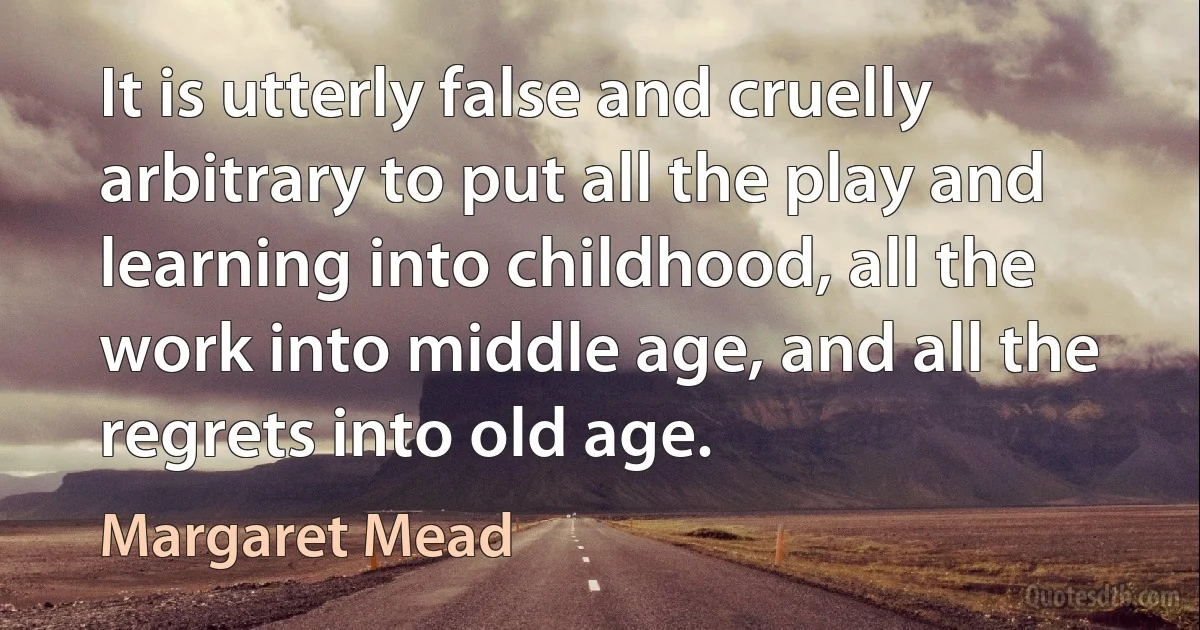Margaret Mead quotes
Margaret Mead was an influential American cultural anthropologist known for her groundbreaking studies of the cultures of Oceania. Her research challenged Western assumptions about gender roles, adolescence, and society. She became one of the most prominent public intellectuals of the twentieth century and influenced generations of anthropologists. Here are 165 of her quotes:
Margaret Mead
 Occupation: American Scientist
Occupation: American Scientist
Born: December 16, 1901
Died: November 15, 1978
Quotes count: 165
Wikipedia: Margaret Mead












